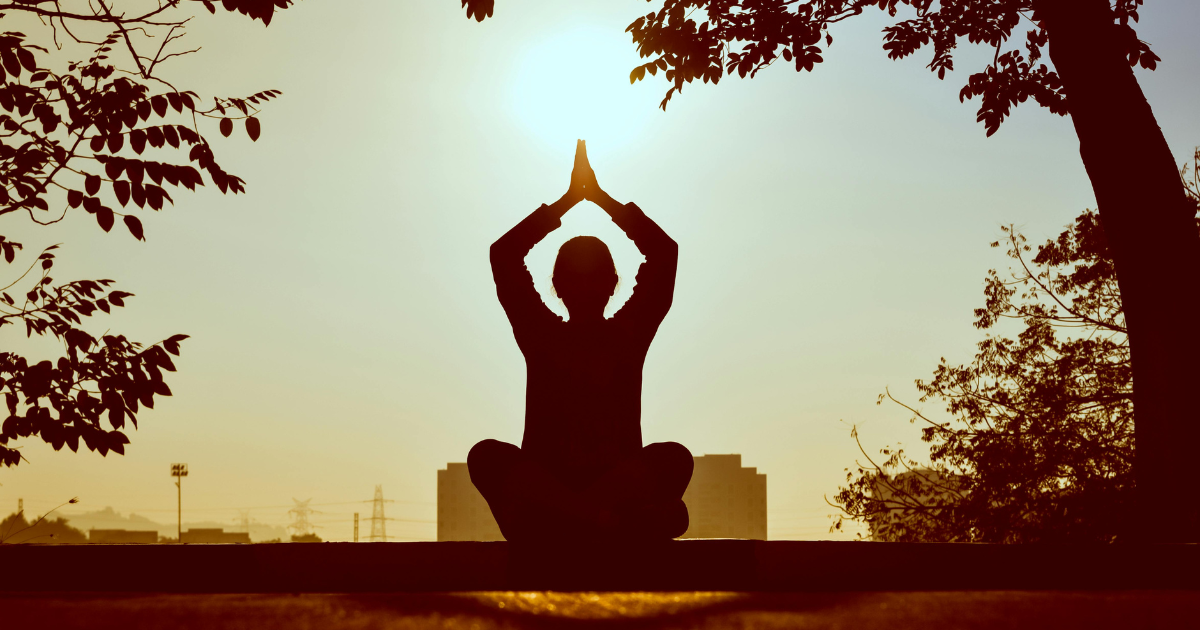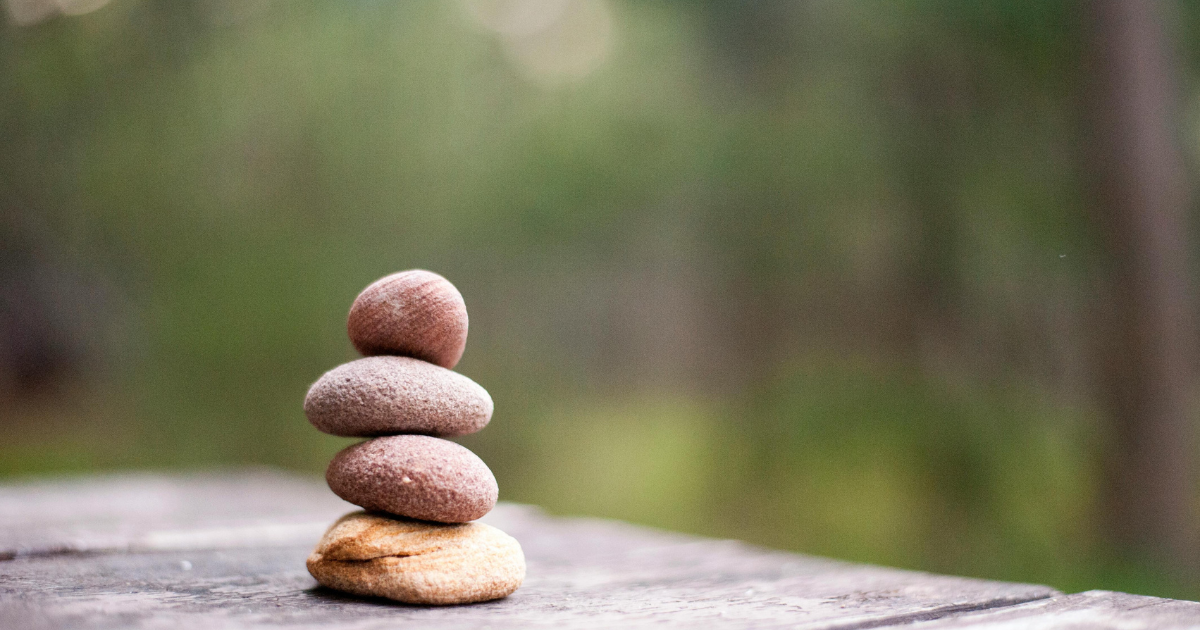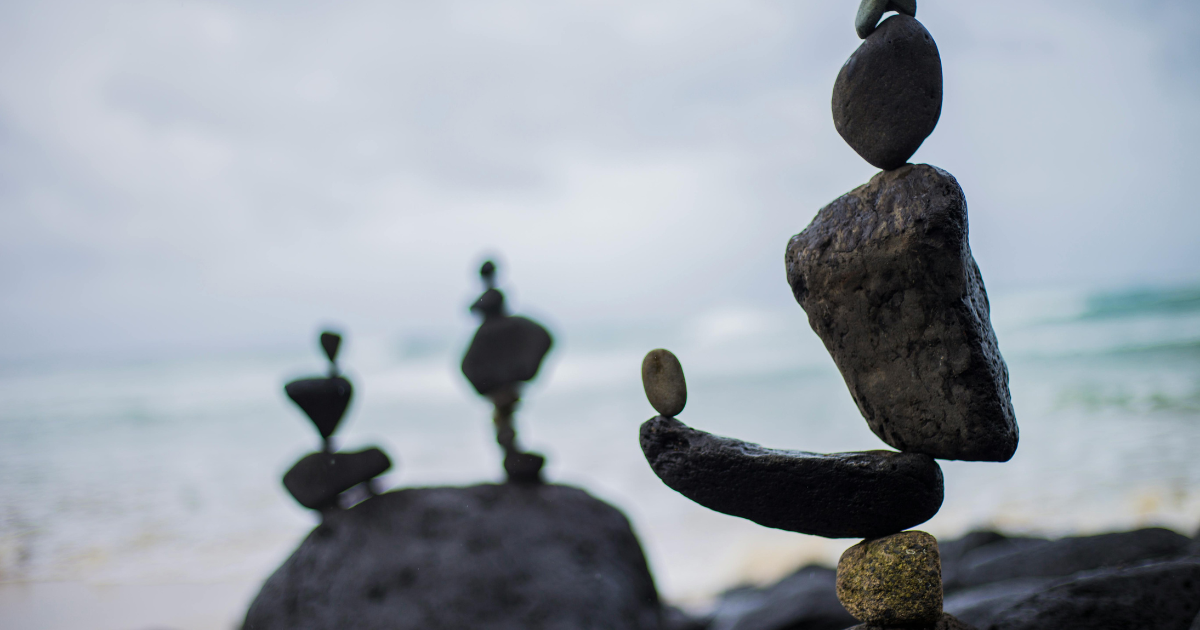Sometimes, it seems no one can get a minute to themselves anymore. For all those juggling jobs, families, or social roles, mindfulness and meditation will be an incredibly valuable means of centering oneself amidst everyday stressors. What does the term “mindfulness and meditation” really entail, though?
Essential Takeaways
- Mindfulness and meditation have many health benefits as they diminish stress, increase concentration, and help create better emotional balance.
- Mindfulness can quickly become integral to daily life at a person’s discretion. Simple practices like mindful breathing or active listening can produce effective changes.
- The only key to developing a mindfulness and meditation practice is consistency. Start small, stay patient, and let yourself grow in practice over time.
In simple terms, mindfulness is the ability to pay attention and be engaged in the present moment without judgment. It allows one to know and pay attention to one’s feelings and thoughts without letting them carry one away.
Greater and greater numbers of people are adopting these practices, and the benefits are becoming more apparent. Mindfulness and meditation offer us refuge from the storm of life and give us a road to improved mental health. Let’s learn how these activities can improve our lives and enter this fantastic dimension.
Understanding Mental Health
Before proceeding further to the benefits of mindfulness and meditation, it is worthwhile to identify the extent of mental health. As mentioned above, “Mental Health” is defined as our emotional, psychological, and social well-being. Mental health directly influences thought, feeling, and behaviors and fundamentally decides how we might cope with stress, function with others, and make choices.
The shocking truth about mental illnesses is how widespread they are. Millions of people worldwide face anxiety, depression, and stress. Modern life often worsens such issues and has been the main reason why most people seek alternative ways to improve mental health. Mindfulness and meditation are some of the activities that might have the ability to manage the disorder of mental health comprehensively.

Common Mental Health Issues
Now, let’s take a minute to discuss some common mental health issues affecting many of you:
- Depression. This is either mild or severe and frequently results in an affectation of normal daily function. It is related to such manifestations as being sad, losing interest in activities that were once enjoyed, and fatigue.
- Stress. No matter how small the amount of stress is, it can be driving; however, chronic stress causes significant health issues such as anxiety and depression. It comes in different forms, generally from work, family responsibilities, or life changes.
The challenges mentioned above prove the necessity of finding efficient ways to cope with these problems. Mindfulness and meditation represent very effective solutions that help reduce symptoms and improve mental conditions overall.
The Science Behind Mindfulness and Meditation
You might wonder how mindfulness and meditation impact our mental health. Let’s explore the science behind these practices to understand their profound effects on the brain.
How Mindfulness Affects the Brain
Research shows that mindfulness practice can significantly change the anatomy and functioning of the brain. For instance, MRI scan studies show that mindfulness practitioners have greater gray matter density in brain areas associated with emotional regulation, empathy, and self-awareness.
The amygdala, the part of the brain that responds to an attack or defense, also slows down when one engages in such mindfulness practices. Lower activity in this area may reduce stress and worry and thus improve a person’s ability to think clearly and act calmly while facing difficulties.
Meditation and Mental Health
The brain’s physical structure is only one of the benefits meditation affords. Many studies have shown how well it can alleviate symptoms of anxiety and depression. Mindfulness meditation programs significantly reduce feelings of pain, anxiety, and depression.
What happens in meditation to explain its wide range of benefits? One of the skills that we cultivate when we meditate is the ability to concentrate our attention on our breath, a mantra, or even our physical sensations. Ultimately, such concentration cultivates calm and mental clarity by training our brains to let go of distracting thoughts and annoyances.
Benefits of Mindfulness and Meditation for Mental Health
The benefits of mindfulness and meditation for mental health are vast and profound. Here are some key advantages you can expect when incorporating these practices into your life:
Stress Reduction
One of the most important benefits of mindfulness and meditation is that they decrease stress. This is possible by spacing us out from the anxiety of everyday life and being in reality. As we age, we become much more sensitive to thoughts and feelings. Thus, we can respond more resiliently to stressors instead of acting impulsively.
Improved Focus and Concentration
It’s a very distracted world, so keeping things in line sometimes feels challenging. Meditation and other mindfulness practices increase the brain’s efficiency at focusing. Research has shown that mindfulness improves our ability to switch between tasks and modulate attention, allowing us to stay in the moment and focus on work.
Enhanced Emotional Well-Being
Against this backdrop, mindfulness and meditation may help enhance emotional well-being. Mindfulness and meditation decrease undesirable thought patterns and enhance desirable emotions, thus increasing stability and soundness of the state of emotion, culminating in greater happiness and life satisfaction.

Better Relationships
Mindfulness practice will enrich our social interactions. We will become increasingly aware of ideas and feelings, allowing us to react to people more deliberately than reactively. The further we are connected emotionally, the better our relations will get because of the improved communication provoked by increased emotional intelligence.
Greater Resilience
Life is indeed packed with hassles and frustrations. On the flip side, mindfulness and meditation can improve our resilience, making bouncing back more effortless. Through self-awareness and emotional regulation, we enhance our capability of dealing with the turmoils of life in a composed and confident manner.
Practical Mindfulness and Meditation Techniques
Now that we understand the benefits, let’s explore practical techniques for incorporating mindfulness and meditation into daily life.
Mindfulness Practices
Here are some of the simple mindfulness practices you may practice:
- Breathing. For about a minute or two, engage your attention on your breath. Inhale slowly through the nose, retain it for a few seconds, and breathe out slowly through the mouth. Repeat that for several minutes, and make your breath the focus of attention.
- Body Scan Meditation. Lie comfortably and take a few deep breaths in and out. Now, slowly bring your attention to different parts of your body. Start at your toes and go all the way up to your head. Try to be aware of the sensations in each place and notice and acknowledge the tension.
- Mindful Eating. Take your time to enjoy every single bite of your food at your meals. Taste the flavors, both the textures and the aromas of your food. It will not only make you appreciate your meal much better, but it will also make your digestion better.
Guided Meditation
If you’re new to meditation, guided sessions can be beneficial. Many apps and websites offer free or paid resources. Some popular options include:
- Headspace. A user-friendly app that provides guided meditations tailored to different needs, such as stress relief, sleep, and focus.
- Calm. This app features guided meditations, sleep stories, and mindfulness techniques to help you relax and unwind.
- Insight Timer. A free meditation app with thousands of guided sessions from various teachers covering various topics and styles.
Integrating Mindfulness into Daily Life
The good news is that mindfulness doesn’t have to be confined to designated periods in a meditation room. Here are some suggestions on how to increase your mindfulness in your everyday activities:
- Morning Mindfulness. As you arise, take a few minutes to practice mindfulness. Take a few deep breaths, feel the new day ahead, and set intentions before springing out of bed.
- Mindfulness in Everyday Life. When brushing your teeth, showering, or walking, practice being completely present at that moment. Be aware of the sensations, sounds, and feelings from such activity.
- Mindfulness in Communication. When communicating with others, one should listen attentively. Give all your concentration to the person speaking and do not interrupt them by preparing for how you will respond while the other person is saying.
Overcoming Barriers to Mindfulness and Meditation
Although there are many advantages to practicing mindfulness and meditation, some people may find it challenging to overcome obstacles. The following are typical misunderstandings, difficulties, and methods for overcoming them.
Misconceptions About Mindfulness and Meditation
“I need to be a good meditator.”
For most people, meditation requires a talent or a skill for people to do. Truthfully, though, that is not so. To meditate is all about practice and acceptance. The simple fact of “being there” makes all the difference.
“I don’t have time to be mindful.”
Yes, life has become hectic nowadays, but mindfulness does not necessarily require hours and hours of dedication. A few minutes of your day can make all the difference; start small and build it up as you gradually feel comfortable.
Potential Challenges
- Restlessness: You can get restless or unfocused at some point. Observe your feelings and do not judge them. Refocus your attention softly on your breath or point of meditation.
- Self-judgment: Few people judge themselves during this mindfulness practice. Mindfulness is about acceptance, so allow thoughts and feelings to come in without judgment to create a safe place for self-discovery.
Final Discussion
Mindfulness and meditation can profoundly reshape your life, offering a pathway to improved mental health and overall well-being. Through unwavering commitment and consistent practice, these ancient techniques can awaken a heightened awareness, foster inner tranquility, and fortify emotional strength.
As you delve into these transformative practices, remember that the journey holds immense value, often as much as the destination. By fully immersing yourself in the present, mindfulness becomes a compass that guides you toward a more meaningful, fulfilling, and harmonious life. It invites you to experience a state of contentment and wholeness that transcends the ordinary, helping you unlock your true potential for lasting peace and happiness.

FAQs
- What is the difference between mindfulness and meditation?
Mindfulness is the practice of being present and aware of the moment without judgment, while meditation often involves focused attention and techniques to cultivate mindfulness. They complement each other, but they are distinct practices.
- How long should I meditate each day?
Start with a few minutes daily and gradually increase your practice as you feel comfortable. Even a short daily meditation can be beneficial, so find a duration that works for you.
- Can mindfulness and meditation help with anxiety?
Yes, research shows that mindfulness and meditation can reduce symptoms of anxiety by promoting relaxation, emotional regulation, and self-awareness.
- Do I need any special equipment for mindfulness or meditation?
No special equipment is required. You can practice mindfulness and meditation anywhere, anytime. A comfortable seat and a quiet environment can enhance your experience, but they are not necessary.
- How do I stay consistent with my mindfulness and meditation practice?
Set a regular time each day for your practice, create a dedicated space for meditation, and consider using apps or guided sessions to keep you motivated. Start small and build gradually.








